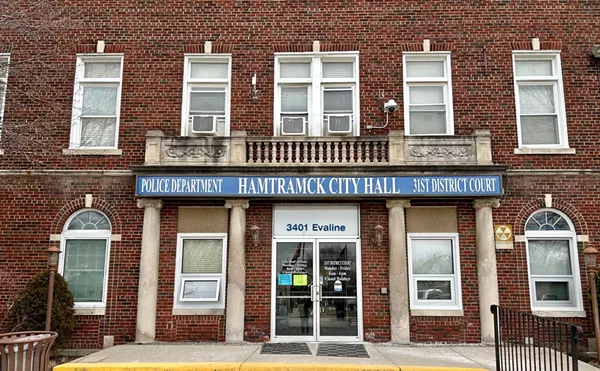
Audio By Carbonatix
[
{
"name": "GPT - Leaderboard - Inline - Content",
"component": "35519556",
"insertPoint": "5th",
"startingPoint": "3",
"requiredCountToDisplay": "3",
"maxInsertions": 100,
"adList": [
{
"adPreset": "LeaderboardInline"
}
]
}
]
Bad news for people living in Detroit’s Greendale community near Seven Mile and John R. Folks there are finding out that holding a corporate polluter responsible is like trying to kill a two-headed snake. Instead of collecting damages from a Michigan firm that did its dirty business in their back yard, dozens of low-income residents recently discovered they now face the difficult task of getting a Canadian company to pay.
In 1991, Canflow Environmental Services Corp., an Ontario company, began trucking hazardous waste from Canadian auto and manufacturing plants into Detroit and dumping it down Greendale’s 80-year-old sewer system. The dump site is owned by Canflow Services Inc., a Michigan corporation that records show is joined at the hip and head with its Canadian namesake. (Metro Times wrote about the dumping earlier this year: "Waste knot,” Feb. 20- 26.)
City and state permits required the company to treat the waste, dumped at a rate of several thousand gallons per day; dozens of violations were recorded over the years. Residents complained of industrial muck and sewage backing up into their homes, making them sick. They sued in March.
But a lawyer for Canflow says the Michigan company is now defunct and has no assets except the abandoned concrete and rusted-metal facility where waste was dumped.
“They can have it,” chuckles Canflow attorney Jim Parks. “That building is the company’s only asset. I’ve offered it once and I’ll offer it again.”
“They’re saying, basically, screw you,” says Steven Liddle, attorney for the residents. Liddle says Canflow of Canada — which has plenty of assets — is responsible, and filed a suit last week naming the firm. The challenge of collecting damages across an international border is considerable, he says.
“What I want to know is, what kind of moron in the city of Detroit allowed a foreign corporation to come into the city and dump industrial pollution into city sewers without any insurance or bond or something to ensure that if they violate their permits or environmental laws, that there is money to remediate the environmental damage they’ve caused?”
Send comments to letters@metrotimes.com





